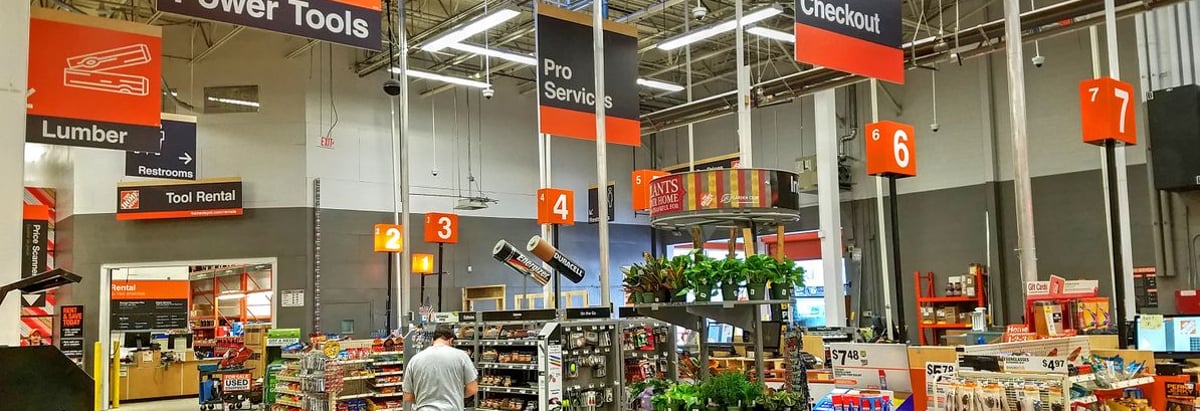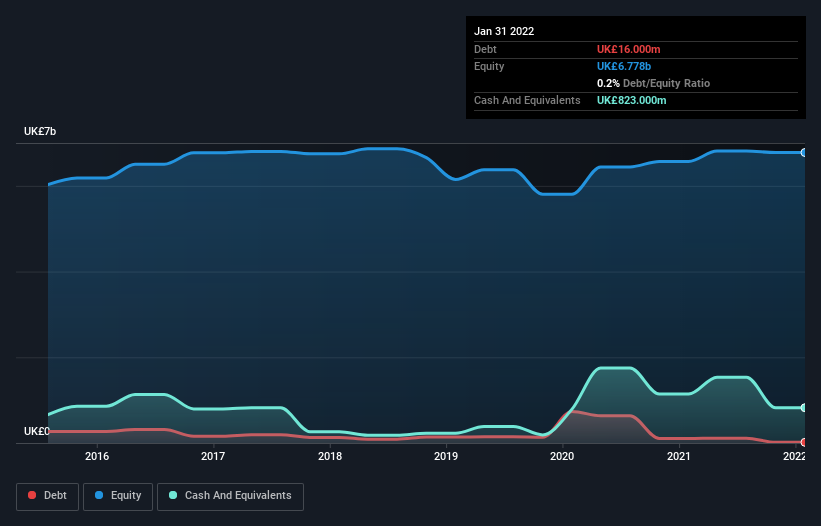
The external fund manager backed by Berkshire Hathaway's Charlie Munger, Li Lu, makes no bones about it when he says 'The biggest investment risk is not the volatility of prices, but whether you will suffer a permanent loss of capital.' So it might be obvious that you need to consider debt, when you think about how risky any given stock is, because too much debt can sink a company. We note that Kingfisher plc (LON:KGF) does have debt on its balance sheet. But the real question is whether this debt is making the company risky.
When Is Debt Dangerous?
Debt is a tool to help businesses grow, but if a business is incapable of paying off its lenders, then it exists at their mercy. In the worst case scenario, a company can go bankrupt if it cannot pay its creditors. However, a more usual (but still expensive) situation is where a company must dilute shareholders at a cheap share price simply to get debt under control. Having said that, the most common situation is where a company manages its debt reasonably well - and to its own advantage. The first step when considering a company's debt levels is to consider its cash and debt together.
See our latest analysis for Kingfisher
How Much Debt Does Kingfisher Carry?
You can click the graphic below for the historical numbers, but it shows that Kingfisher had UK£16.0m of debt in January 2022, down from UK£104.0m, one year before. However, its balance sheet shows it holds UK£823.0m in cash, so it actually has UK£807.0m net cash.

A Look At Kingfisher's Liabilities
The latest balance sheet data shows that Kingfisher had liabilities of UK£3.12b due within a year, and liabilities of UK£2.46b falling due after that. Offsetting these obligations, it had cash of UK£823.0m as well as receivables valued at UK£255.0m due within 12 months. So its liabilities outweigh the sum of its cash and (near-term) receivables by UK£4.50b.
This is a mountain of leverage relative to its market capitalization of UK£4.94b. This suggests shareholders would be heavily diluted if the company needed to shore up its balance sheet in a hurry. While it does have liabilities worth noting, Kingfisher also has more cash than debt, so we're pretty confident it can manage its debt safely.
Also good is that Kingfisher grew its EBIT at 16% over the last year, further increasing its ability to manage debt. When analysing debt levels, the balance sheet is the obvious place to start. But ultimately the future profitability of the business will decide if Kingfisher can strengthen its balance sheet over time. So if you want to see what the professionals think, you might find this free report on analyst profit forecasts to be interesting.
But our final consideration is also important, because a company cannot pay debt with paper profits; it needs cold hard cash. Kingfisher may have net cash on the balance sheet, but it is still interesting to look at how well the business converts its earnings before interest and tax (EBIT) to free cash flow, because that will influence both its need for, and its capacity to manage debt. Over the last three years, Kingfisher recorded free cash flow worth a fulsome 98% of its EBIT, which is stronger than we'd usually expect. That positions it well to pay down debt if desirable to do so.
Summing up
While Kingfisher does have more liabilities than liquid assets, it also has net cash of UK£807.0m. And it impressed us with free cash flow of UK£781m, being 98% of its EBIT. So we are not troubled with Kingfisher's debt use. There's no doubt that we learn most about debt from the balance sheet. However, not all investment risk resides within the balance sheet - far from it. We've identified 3 warning signs with Kingfisher (at least 1 which is concerning) , and understanding them should be part of your investment process.
If, after all that, you're more interested in a fast growing company with a rock-solid balance sheet, then check out our list of net cash growth stocks without delay.
Valuation is complex, but we're here to simplify it.
Discover if Kingfisher might be undervalued or overvalued with our detailed analysis, featuring fair value estimates, potential risks, dividends, insider trades, and its financial condition.
Access Free AnalysisHave feedback on this article? Concerned about the content? Get in touch with us directly. Alternatively, email editorial-team (at) simplywallst.com.
This article by Simply Wall St is general in nature. We provide commentary based on historical data and analyst forecasts only using an unbiased methodology and our articles are not intended to be financial advice. It does not constitute a recommendation to buy or sell any stock, and does not take account of your objectives, or your financial situation. We aim to bring you long-term focused analysis driven by fundamental data. Note that our analysis may not factor in the latest price-sensitive company announcements or qualitative material. Simply Wall St has no position in any stocks mentioned.
About LSE:KGF
Kingfisher
Supplies home improvement products and services primarily in the United Kingdom, Ireland, France, and internationally.
Flawless balance sheet with proven track record and pays a dividend.


